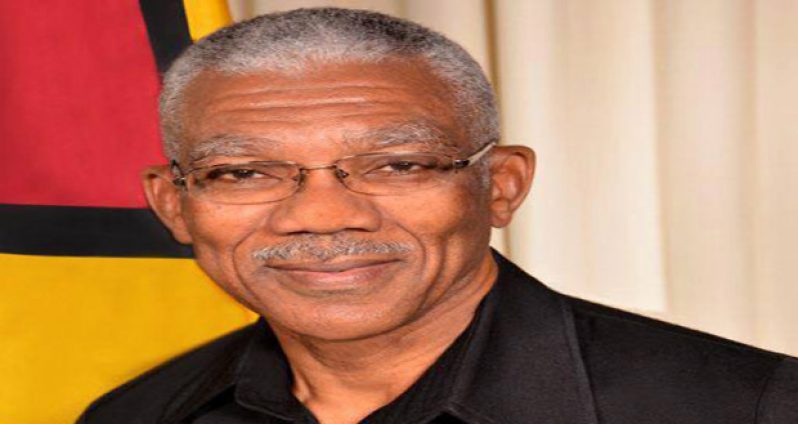GUYANA’S security sector will be totally reformed by 2017 to combat the overlapping crimes that are imported onto the coastland from the borders, according to President David Granger.In a U.S. report, it was noted that cocaine flowed across Guyana’s remote, uncontrolled borders and coast, while weapons smuggling and trafficking in persons are also a major issue. In an interview at the Ministry of the Presidency, the Guyanese Head of State noted that “we are aware of the size of the problem; the coastland alone is nearly 450 kilometres, and the borders with Brazil, which is one of the largest producers of small arms, Venezuela and Suriname pose their own risks. What has started to happen and I think some other politicians don’t realise is that there is going to be a much greater deployment of the Defence Force in the hinterland on borders; secondly, the police are right now moving horses into some hinterland areas so that they can conduct mounted patrols so that gasoline vehicles are not a necessity in those areas.”
BRITISH GOV’T SUPPORT
He explained that the Guyana Defence Force (GDF) and the Guyana Police Force (GPF) will be having more effective control over the security systems within the country as the British Government is currently working on an assessment aimed at restarting the Security Sector Reform Programme here.
The British Government is supporting the programme, and President Granger has repeatedly spoken of the need to have the programme here. “We need to deal with the public security problem, and I have approached the British Government to restore the Security Sector Reform Plan,” Granger previously noted.
In 2007, the US$4.7B project was implemented but was scrapped in 2009 after the British Government had requested to have oversight of the programme to ensure that there was “value for money.” The former People’s Progressive Party Civic (PPP/C) administration had disagreed with the manner in which the British Government had wanted the programme to be run, and had stated that the British sought to intrude upon Guyana’s sovereignty.
ON THE BORDERS
However, President Granger said “we are aware of the problems and we are taking a very decisive step to give the police and army the assets, so that the crimes that occur on the borders, trafficking in cocaine, trafficking in weapons, trafficking in persons are not imported onto the coastland. The crime starts there, guns don’t drop from the air, the guns come across the border, cocaine comes across the border.”
Underscoring the need for more surveillance aircraft because the distances are great along the coastland, the President said air support is needed to suffocate and clamp down on piracy as it would also require better coastal vessels.
Over the last six months government has hired civilian aircraft, but the Head of State said this can be very expensive, especially when tackling piracy. “So we do have a plan and that calls for giving the police force better assets.”
The Commander-in-Chief said that senior officers and policemen who are responsible for interior divisions and locations, are now being placed closer to the areas and regions where they have a hands-on approach to be involved in more aviation, maritime and riverine craft patrols which will be provided as part of an unfolding strategy for security breaches.
ROLE FOR CITIZENS
Meanwhile, he also explained that citizens can also assist through their churches, mosques, mandirs and non-governmental organisations in taking stronger roles in assisting the State with the development of society.
“We want to see parents more involved in their children’s lives so that they are not exposed to the type of extremism which would lead them in getting involved in any type of crime. At the community level I would like to see a new thrust towards community policing,” he declared.
He explained that community policing doesn’t mean giving people handcuffs, batons and blue t-shirts, but it’s a form of relationship between the community and the police.
“I would like to see in the weeks and months to come that the Community Policing Group (CPG) system would be transformed into one in which the police commanders and citizens can sit down and decide how those communities are protected,” he said.
He observed that in some instances, citizens feel they are deprived of the protection of the police. “Now I see a community policing system in which the police are aware of these vulnerabilities and take preventative action…In schools we must inculcate the values of respect for each other…a lot can be done but it’s not the responsibility of the State alone.”
By Rabindra Rooplall



.jpg)










